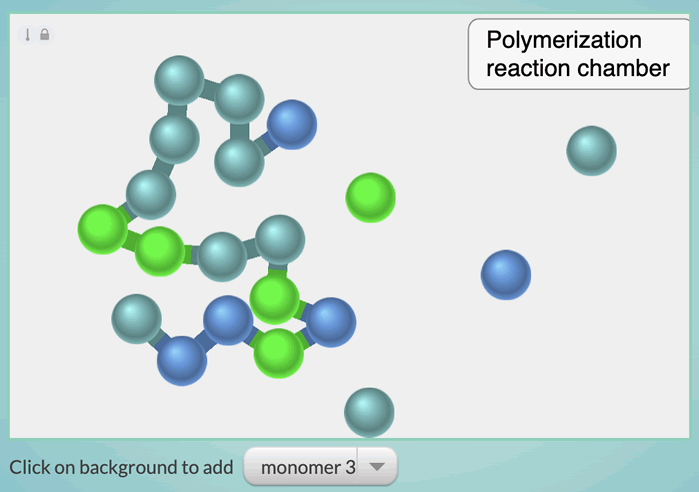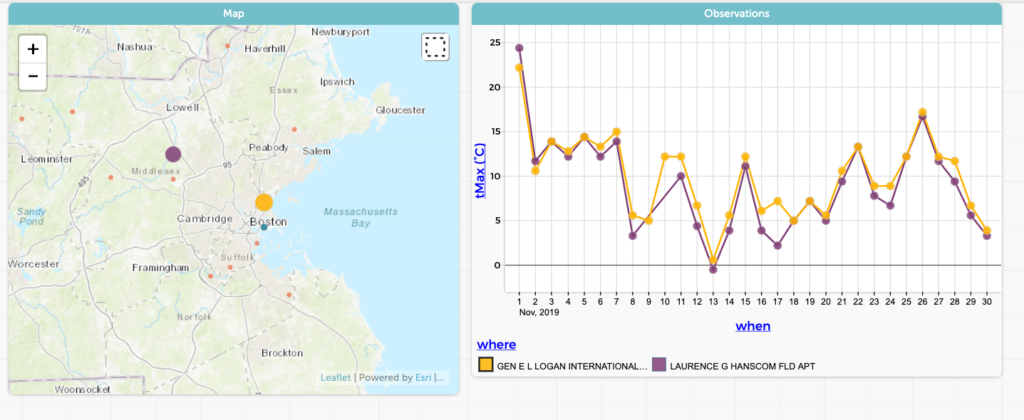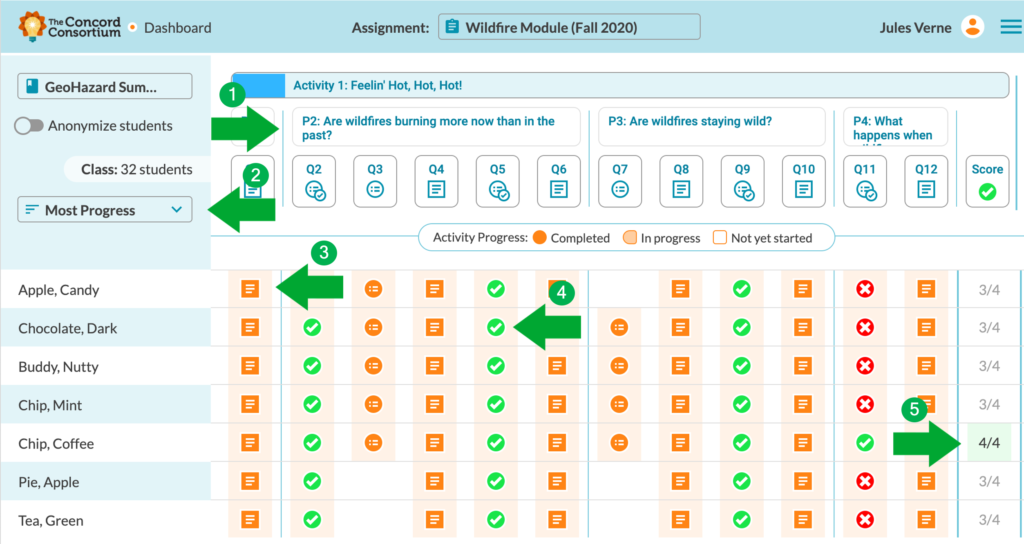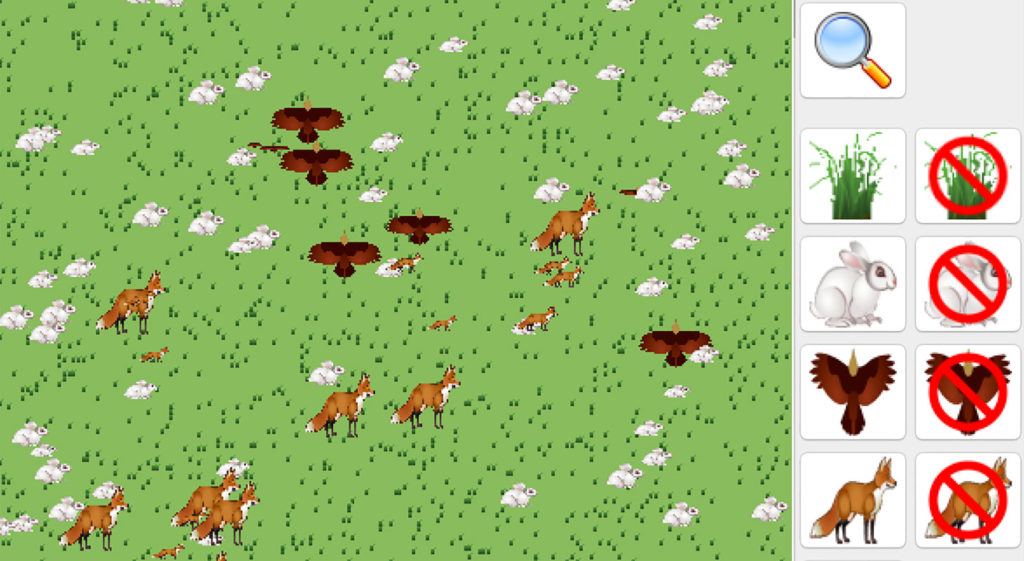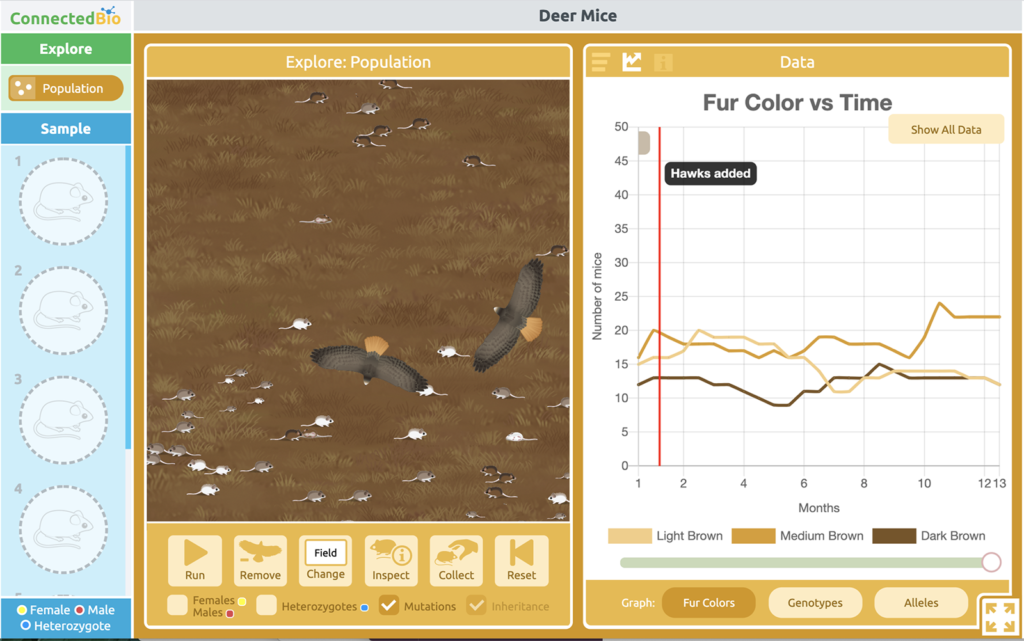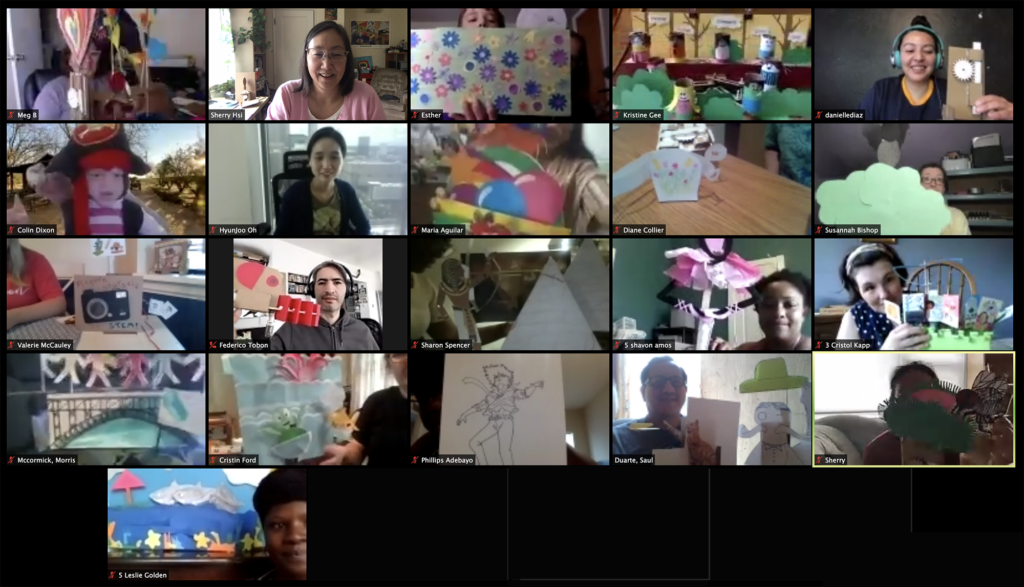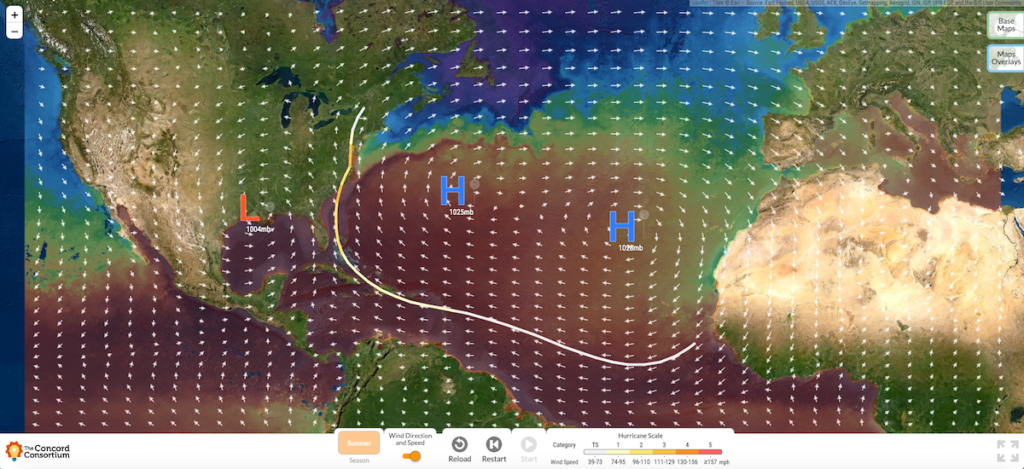Category: 2020
Whether teaching physics, chemistry, or biology, every high school science teacher is challenged to take students on a journey down to the nanoscale level where intangible, invisible forces hold sway and mysteriously result in phenomena at the macroscopic level. Think Ms. Frizzle and her Magic School Bus as her schoolchildren take the ride of their […]
We experience weather every day. And it’s often the easiest icebreaker to start a conversation—“What’s the weather like in your neck of the woods?”—since weather is, well, everywhere! We know a lot about weather, too, thanks to datasets collected by the National Oceanic and Atmospheric Administration (NOAA). The NOAA database includes data from thousands of […]
“Teaching online is definitely challenging and different than when we are doing it in person. However, I notice my students are more focused virtually than in class. There are fewer distractions, I guess, maybe, for some, and they have to watch the demonstration as it unfolds. My students know they have to turn in their […]
The 2020 election was many things. It was close. It was long and drawn out. It was exciting. It was also a teachable moment. Think back to your high school algebra class. OK, don’t think about that, think about the election. Did the media take too long to declare a winner? Or did they actually […]
Remote and hybrid teaching have made keeping track of student work even more challenging. To address this problem, we redesigned our Class Dashboard and have added it to selected activities and modules in our STEM Resource Finder. Just like past iterations, the newly revised Class Dashboard shows a grid of students’ work that updates in […]
Evolution is a particularly daunting subject to teach and to understand. The evidence for it is indirect and the model rests largely on phenomena that cannot be directly observed, including some that are poorly understood to this day. A research-based set of curriculum materials aimed at upper elementary and middle school students can help. We […]
Rebecca Ellis is a research associate at Michigan State University. The Connected Biology project (ConnectedBio), a collaboration between the Concord Consortium and Michigan State University, recently released Deer Mouse Fur Color: From the Field to the Beach. This free, Next Generation Science Standards-aligned set of 15 lessons guides students through a nuanced understanding of the […]
Earth science classes typically present plate tectonics and the rock cycle as separate and unrelated concepts. Yet land and rock formation are directly related to the tectonic environments in which they form. Indeed, plate tectonic interactions are fundamental to understanding geological processes. A new project funded by the National Science Foundation is focused on teaching […]
Educators know that learning happens not just in the classroom, but all the time and across all settings—from school and to home other formal and informal spaces. In learning sciences research, this is described by a learning ecology framework. Like an environmental ecosystem that sustains biodiversity, learning ecology is a set of complex relationships and […]
After weeks of tracking, prediction, and preparation, we watched Hurricane Isaias run its course and dissipate over northeast Canada. Now that the skies have cleared and the winds have passed, we know all that we can about Hurricane Isaias. We know that as a disorganized low pressure system moving east across the Atlantic, Isaias quickly […]
